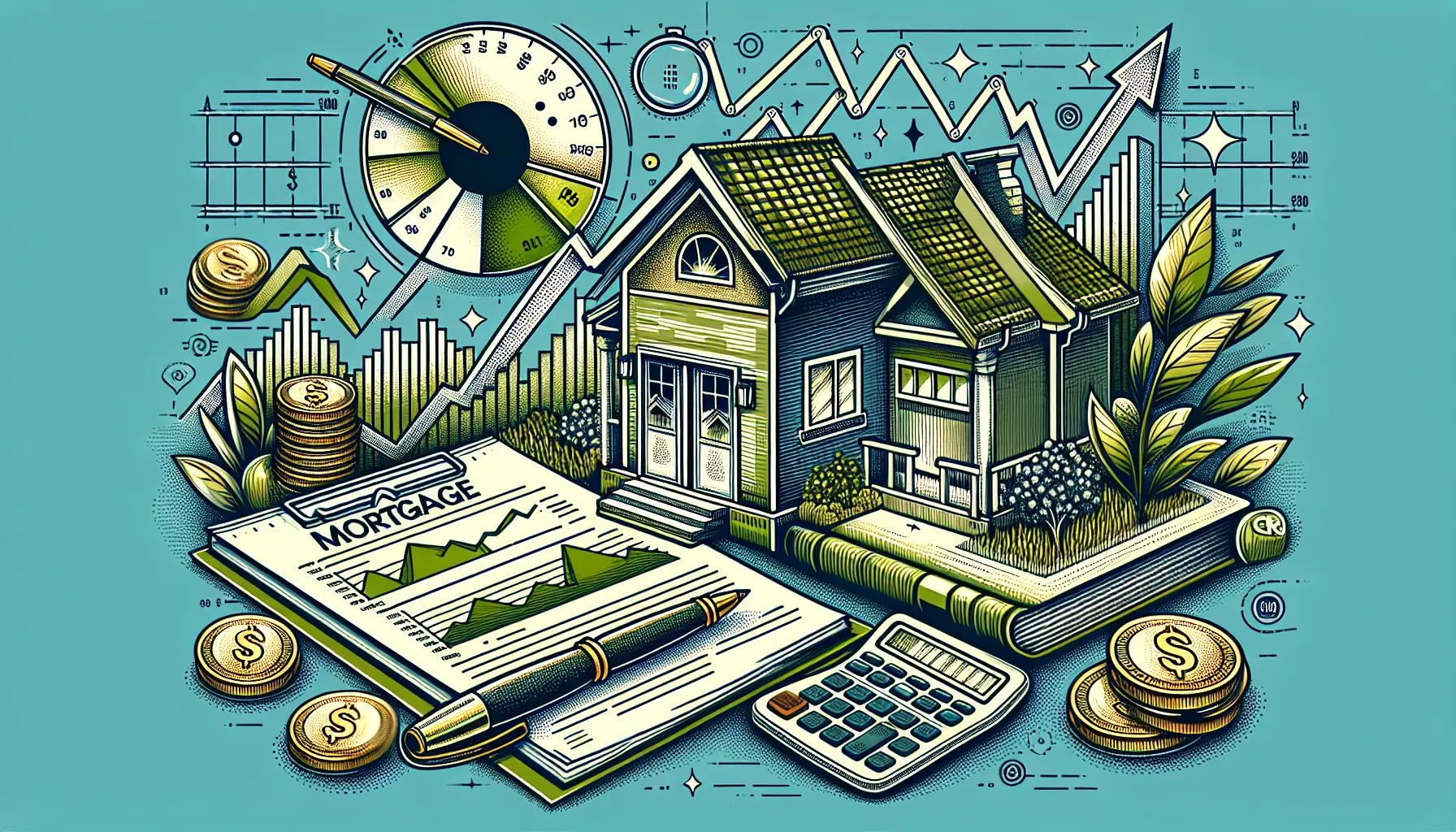The average mortgage interest rate is a topic that often evokes a mix of anticipation and apprehension. Today, as we navigate through the fluctuating real estate market, understanding these rates becomes crucial. Whether you’re a first-time homebuyer or a seasoned investor, the interest rate can significantly impact your financial journey. Let’s delve into the dynamics of mortgage interest rates and discover how they influence real estate decisions in the UK.

Understanding the Average Mortgage Interest Rate
The average mortgage interest rate is pivotal when considering buying a home. This rate determines how much you’ll pay in addition to the principal loan amount. Interestingly, these rates are influenced by numerous factors, including economic conditions, inflation, and governmental policies. But what does this mean for you?
How Economic Factors Influence Rates
The broader economy plays a significant role in determining mortgage rates. When the economy is flourishing, interest rates typically rise as a measure to curb inflation. Conversely, in a downturn, rates may fall to encourage borrowing and investments.
- Inflation: Higher inflation often leads to higher rates to maintain lenders’ profit margins.
- Employment Levels: A robust job market can lead to increased rates due to higher consumer spending.
- Government Policy: Policies set by the Bank of England, such as the base interest rate, directly affect mortgage rates.
The Impact of Credit Scores
Your credit score is like your financial fingerprint. Lenders scrutinize this number to assess your risk level. A higher credit score often results in a lower interest rate. Here’s why:
- Trust Factor: Lenders view high scores as indicative of reliable borrowers.
- Risk Mitigation: Lower scores mean higher interest to offset potential default risks.
Tips to Improve Your Credit Score
- Regularly check credit reports for inaccuracies.
- Pay bills on time to build a positive payment history.
- Reduce outstanding debt to improve your credit utilization ratio.
Mortgage Types and Their Rates
In the UK, there are several types of mortgages, each with distinct rates. Understanding these can help you make an informed decision.
Fixed-Rate Mortgages
These mortgages offer a consistent interest rate over a set period, usually 2, 5, or 10 years. They’re ideal for those who prefer predictability in their monthly payments.
- Pros: Stability in payments, easier budgeting.
- Cons: Typically higher initial rates than variable options.
Variable-Rate Mortgages
With variable-rate mortgages, rates fluctuate based on the base rate set by the Bank of England. They come in several forms:
- Tracker Mortgages: Directly linked to the base rate, moving in tandem with it.
- Discount Mortgages: Offer a discount on the lender’s standard variable rate for a set period.
Comparison Table: Fixed vs. Variable Rates
| Feature | Fixed-Rate | Variable-Rate |
|---|---|---|
| Rate Stability | High | Low |
| Initial Cost | Higher | Lower |
| Payment Predictability | High | Low |
Leveraging Technology with AnySqft
Navigating mortgage rates can be daunting, but AnySqft’s AI-driven platform simplifies the process. It offers insights into market trends, helping you find competitive rates tailored to your needs. This technology streamlines the property transaction process, making it more efficient and personalized.
The Future of Mortgage Rates
Predicting future mortgage rates is akin to forecasting the weather – there’s always some uncertainty. However, experts suggest that rates will remain relatively stable in the near term. Factors like economic growth and geopolitical events will continue to play a role.
How to Prepare for Rate Changes
- Stay Informed: Regularly monitor economic news and forecasts.
- Consult Experts: Use financial advisors to understand potential impacts on your mortgage.
- Consider Refinancing: If rates drop significantly, refinancing could reduce your payments.
Conclusion
Understanding the average mortgage interest rate is essential for navigating the real estate market effectively. By staying informed and leveraging technology such as AnySqft, you can make smarter decisions that align with your financial goals. Whether rates rise or fall, the key is preparation and adaptability.
In summary, while the landscape of mortgage interest rates in the UK may seem complex, being armed with knowledge and the right tools can turn this intricate web into a navigable path toward homeownership.
Average Mortgage Interest Rate
The average mortgage interest rate fluctuates based on various economic factors. Here’s a quick breakdown:
Current Rates
- 30-Year Fixed: Approximately 6.63%
- 15-Year Fixed: Approximately 5.72%
Influencing Factors
- Credit Score: Higher scores lead to lower rates.
- Economic Conditions: Inflation and employment levels affect rates.
Comparison
- Fixed Rates: Stability in payments.
- Variable Rates: Potential for lower initial rates but with fluctuations.
For the latest insights and to find the best mortgage rates, leverage AnySqft. Make informed decisions for your property journey today! Explore AnySqft now!
